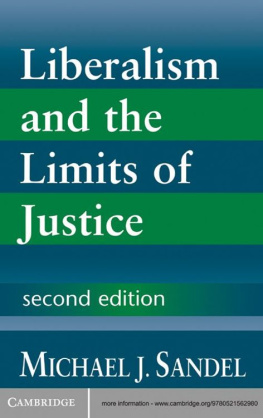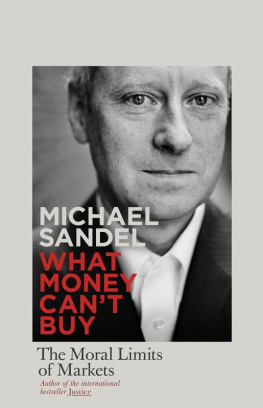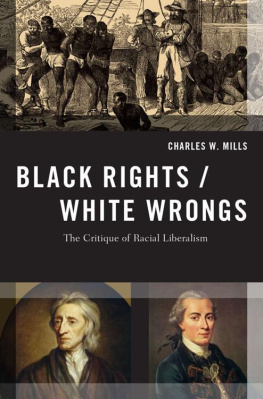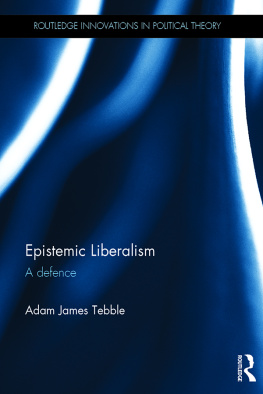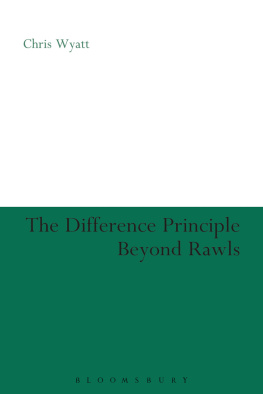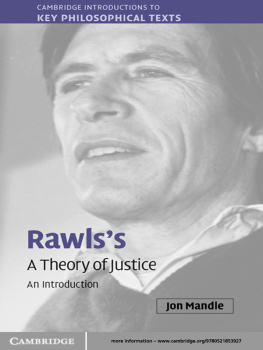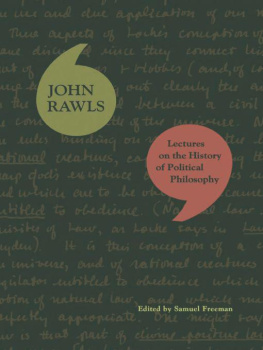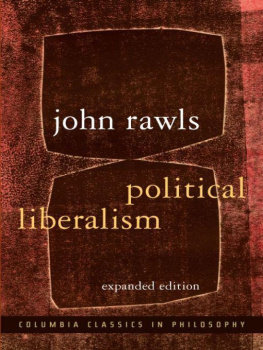Liberalism and the Limits of Justice
SECOND EDITION
A liberal society seeks not to impose a single way of life but to leave its citizens as free as possible to choose their own values and ends. It therefore must govern by principles of justice that do not presuppose any particular vision of the good life. But can any such principles be found? And if not, what are the consequences for justice as a moral and political ideal?
These are the questions Michael Sandel takes up in this penetrating critique of contemporary liberalism. He locates modern liberalism in the tradition of Kant, and focuses on its most influential recent expression in the work of John Rawls. In the most important challenge yet to Rawlss theory of justice, Sandel traces the limits of liberalism to the conception of the person that underlies it, and argues for a deeper understanding of community than liberalism allows.
For this second edition Sandel has addressed criticisms of the first edition in a new preface, and has written a new chapter considering Rawlss latest work.
Liberalism and the Limits of Justice
SECOND EDITION
MICHAEL J. SANDEL

PUBLISHED BY THE PRESS SYNDICATE OF THE UNIVERSITY OF CAMBRIDGE The Pitt Building, Trumpington Street, Cambridge CB2 1RP, United Kingdom
CAMBRIDGE UNIVERSITY PRESS
The Edinburgh Building, Cambridge CB2 2RU, UK http://www.cup.cam.ac.uk
40 West 20th Street, New York, NY 10011-4211, USA http://www.cup.org
10 Stamford Road, Oakleigh, Melbourne 3166, Australia
Cambridge University Press 1982, 1998
This book is in copyright. Subject to statutory exception and to the provisions of relevant collective licensing agreements, no reproduction of any part may take place without the written permission of Cambridge University Press.
First edition published 1982
Second edition first published 1998
Reprinted 1998
Typeset in New Baskerville 10.5/13, using QuarkXPress for the Macintosh [BB]
A catalogue record for this book is available from the British Library.
Library of Congress Cataloguing-in-Publication Data applied for.
ISBN 0-521-56298-8 hardback
ISBN 0-521-56741-6 paperback
Transferred to digital printing 2005
To my parents
Contents
Preface to the Second Edition
The Limits of Communitarianism
Much has changed in the landscape of political philosophy since this book first appeared. The 1980s and 1990s brought an avalanche of books and articles devoted to what now goes by the name of the liberal-communitarian debate. Meanwhile, John Rawls, whose deservedly celebrated work A Theory of Justice was the primary focus of my critique, has recast his theory in important ways. In the new final chapter for this second edition, I examine the revised version of liberalism that Rawls presents in his recent work. In this preface, I wish to register some unease with the communitarian label that has been applied to the view advanced in Liberalism and the Limits of Justice (LLJ).
WHERE COMMUNITARIANISM GOES WRONG
Along with the works of other contemporary critics of liberal political theory, notably Alasdair MacIntyre,LLJ has come to be identified with the communitarian critique of rights-oriented liberalism. Since part of my argument is that contemporary liberalism offers an inadequate account of community, the term fits to some extent. In many respects, however, the label is misleading. The liberal-communitarian debate that has raged among political philosophers in recent years describes a range of issues, and I do not always find myself on the communitarian side.
The debate is sometimes cast as an argument between those who prize individual liberty and those who think the values of the community or the will of the majority should always prevail, or between those who believe in universal human rights and those who insist there is no way to criticize or judge the values that inform different cultures and traditions. Insofar as communitarianism is another name for majoritarianism, or for the idea that rights should rest on the values that predominate in any given community at any given time, it is not a view I would defend.
What is at stake in the debate between Rawlsian liberalism and the view I advance in LLJ is not whether rights are important but whether rights can be identified and justified in a way that does not presuppose any particular conception of the good life. At issue is not whether individual or communal claims should carry greater weight but whether the principles of justice that govern the basic structure of society can be neutral with respect to the competing moral and religious convictions its citizens espouse. The fundamental question, in other words, is whether the right is prior to the good.
For Rawls, as for Kant, the priority of the right over the good stands for two claims, and it is important to distinguish them. The first is the claim that certain individual rights are so important that even the general welfare cannot override them. The second is the claim that the principles of justice that specify our rights do not depend for their justification on any particular conception of the good life or, as Rawls has put it more recently, on any comprehensive moral or religious conception. It is the second claim for the priority of right, not the first, that LLJ seeks to challenge.
The notion that justice is relative to the good, not independent of it, connects LLJ to writings by others commonly identified as the communitarian critics of liberalism. But there are two versions of the claim that justice is relative to good, and only one of them is communitarian in the usual sense. Much of the confusion that has beset the liberal-communitarian debate arises from failing to distinguish the two versions.
One way of linking justice with conceptions of the good holds that principles of justice derive their moral force from values commonly espoused or widely shared in a particular community or tradition. This way of linking justice and the good is communitarian in the sense that the values of the community define what counts as just or unjust. On this view, the case for recognizing a right depends on showing that such a right is implicit in the shared understandings that inform the tradition or community in question. There can be disagreement, of course, about what rights the shared understandings of a particular tradition actually support; social critics and political reformers can interpret traditions in ways that challenge prevailing practices. But these arguments always take the form of recalling a community to itself, of appealing to ideals implicit but unrealized in a common project or tradition.
A second way of linking justice with conceptions of the good holds that principles of justice depend for their justification on the moral worth or intrinsic good of the ends they serve. On this view, the case for recognizing a right depends on showing that it honors or advances some important human good. Whether this good happens to be widely prized or implicit in the traditions of the community would not be decisive. The second way of tying justice to conceptions of the good is therefore not, strictly speaking, communitarian. Since it rests the case for rights on the moral importance of the purposes or ends rights promote, it is better described as teleological, or (in the jargon of contemporary philosophy) perfectionist. Aristotles political theory is an example: Before we can define peoples rights or investigate the nature of the ideal constitution, he writes, it is necessary for us first to determine the nature of the most desirable way of life. As long as that remains obscure, the nature of the ideal constitution must also remain obscure.
Next page
